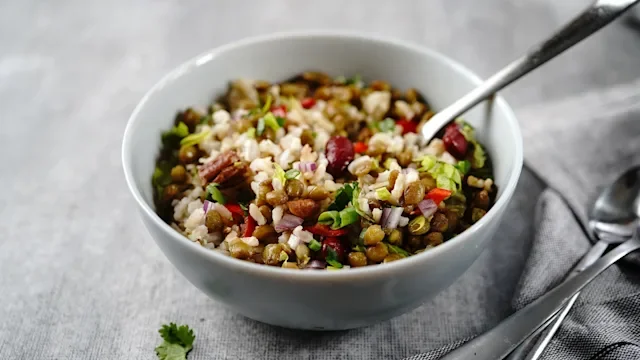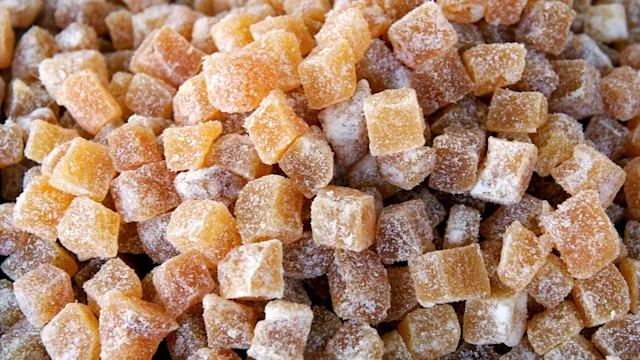Key takeaways:
Xylitol is a sweetener used to replace sugar in products ranging from baked goods to gum and toothpaste.
Emerging research has found that xylitol may increase the risk of forming blood clots.
People at higher risk for developing blood clots or with a history of blood clots may want to consider avoiding xylitol until more information is available.
Maybe you’ve noticed xylitol on the ingredient list of your sugar-free ice cream or baked goods.
Xylitol is added to baked goods and other desserts, and is marketed as a low-calorie substitute for sugar. And you can also buy it in bulk for home baking.
It’s also found in some brands of toothpaste and sugar-free gums and breath mints.
But some evidence suggests that consuming xylitol may be unhealthy, especially for people with risk factors for blood clots.
Let’s review the research and explore the potential concerns about using xylitol as a sugar substitute.
What is xylitol?
Xylitol is a sugar alcohol, a type of carbohydrate that’s used as a sweetener instead of sugar. Small amounts are found naturally in some fruits and vegetables. It’s sometimes marketed as birch sugar because it’s processed from birch bark and corn cobs.
Xylitol is touted as a low-calorie option because it has about 40% fewer calories than table sugar. It’s added to baked goods and other desserts because it adds sweetness, bulk, and texture to foods.
It’s also marketed to people with diabetes because it doesn’t raise blood sugar levels as much as sugar does. It’s processed in the gut more slowly than sugar, which means it has a low glycemic index. So, it has less of an effect on blood sugar levels.
What is the debate over the effects of xylitol?
Xylitol has been promoted as a healthy alternative to sugar. It’s been called a “natural sweetener,” “low-calorie,” and “keto-friendly.” And it’s marketed to people with diabetes.
Are any artificial sweeteners healthy? Here’s a review of the possible risks.
How can you naturally sweeten foods? We’ve compiled a list of natural sweeteners to use instead of sugar.
Is Stevia good for you? Learn how it stacks up to other sweeteners.
But some emerging evidence suggests that it may actually be harmful to people, and especially those with diabetes or other risk factors for blood clots.
One study found that people with higher levels of xylitol in their blood were more likely to have a heart attack or stroke compared to people with lower levels.
The increased risk appears to be related to the effects of xylitol on blood platelets. These are cells in the blood that form blood clots and help stop bleeding.
Read more like this
Explore these related articles, suggested for readers like you.
In this same study, researchers found that when 10 people without diabetes or heart disease drank a xylitol-sweetened beverage, their blood samples showed changes to platelets that could increase the risk of blood clots.
Blood clots are dangerous because they can block blood flow to your heart, brain, and other critical organs. This can cause heart attacks and strokes.
Past research found a similar risk with another sugar alcohol called erythritol.
“This new study adds to the research on the effects of sugar substitutes and heart health,” said Rigved Tadwalkar, MD, a consultative cardiologist at Providence Saint John’s Health Center in Santa Monica, California. “These alternatives might not be as risk-free as once believed.”
Should you cut xylitol from your diet?
You may be choosing food sweetened with xylitol to cut back on calories or to help control blood sugar levels if you have diabetes. But the research questions whether this approach comes with some risk.
“I recommend avoiding xylitol and erythritol in processed foods and drinks altogether,” said Stanley Hazen, MD, PhD, a co-author of the study mentioned above and director of the Center for Cardiovascular Diagnostics & Prevention at Cleveland Clinic Lerner Research Institute.
If you have a history of blood clots or you’re at higher risk for developing one, talk to your primary care provider or other healthcare professional about your personal benefits and risks of consuming xylitol.
You may be at higher risk for a blood clot if you:
Smoke
Recently had prolonged bed rest from surgery, serious illness, or from being hospitalized
Have limited mobility
Have a genetic condition that increases your risk for blood clots
Have obesity, diabetes, or cancer
Take birth control pills or hormone replacement therapy
But even if you don’t have these risk factors, you may want to take a pass on xylitol. It may raise the risk of heart attack and stroke in people with or without known risk factors, Hazen said.
Is xylitol better than sugar if you have diabetes?
Most people who have diabetes can eat some sugar in moderation. “Choosing sugar-sweetened treats occasionally and in small amounts would be preferable to consuming drinks and foods sweetened with these sugar alcohols,” Hazen said.
What foods contain xylitol?
Fruits and vegetables naturally contain xylitol, but in very small amounts.
Xylitol may be added to sugar-free or reduced-sugar baked goods and other sweets.
Reduced-sugar or sugar-free foods with xylitol may include:
Cookies
Baked goods
Ice cream
Pudding
Nut butters
Jams and jellies
Candy
In the baking aisle, you can find packages of xylitol sold alongside table sugar. It’s often marketed as a keto-friendly alternative.
Xylitol is also found in other sugar-free or reduced-sugar products, but the amounts are typically much smaller. These include:
Breath mints
Gum
Cough syrup
Chewable vitamins
Toothpaste
Mouthwash
Is any xylitol safe to eat?
There’s no reason to avoid foods that naturally contain xylitol. These foods have levels that are 1,000 times lower than foods with added xylitol.
But it may be a good idea to avoid foods that contain high quantities of xylitol, like xylitol-sweetened desserts. Xylitol isn’t a high-intensity sweetener like some other artificial sweeteners. So it’s typically used in high quantities, similar to table sugar.
Sugar-free gum or breath-freshening mints have much lower levels of xylitol — about 1 g to 2 g per piece. So these are less likely to cause problems.
And you don’t have to worry about the xylitol in your toothpaste and mouthwash since you don’t swallow these products.
What are the side effects of xylitol?
Xylitol can lead to intestinal issues in some people. It isn’t completely absorbed in your small intestine during digestion. What’s not digested travels into the large intestine, where bacteria then ferment it. That can lead to gas, bloating, and diarrhea in some people.
People following a low FODMAP diet to manage irritable bowel syndrome (IBS) should avoid xylitol and other sugar alcohols.
Are there any benefits of xylitol?
There are some potential benefits to replacing sugar with xylitol, but it’s important to weigh them against any risks:
Helps oral health: Xylitol in fluoride toothpaste may help control harmful bacteria in the mouth, reducing the risk of developing cavities and gum disease. Gum and lozenges with xylitol may also help reduce the risk of cavities.
Helps manage blood sugar levels: In people with diabetes, using nonsugar sweeteners can help manage blood sugar levels. However, the risks of consuming xylitol may outweigh those benefits since people with diabetes are at higher risk of developing blood clots.
How do I know if a food contains sugar alcohols like xylitol?
Sugar alcohols are one of many sugar alternatives found in store-bought food. You’ll usually find sugar alcohols in products marketed as “keto-friendly,” “reduced sugar,” or “sugar-free.”
Look for sugar alcohols on the list of ingredients. Ingredients are listed in order by weight. If a sugar alcohol is mentioned close to the top of the list, there’s likely a lot of it in the product.
Sugar alcohols include:
Xylitol
Erythritol
Hydrogenated starch hydrolysates (HSH)
Isomalt
Lactitol
Maltitol
Mannitol
Sorbitol
You can also check the nutrition facts label on packaged foods. Under “total carbohydrate,” some products list the amount of sugar alcohols in grams per serving.
But only products making a health claim are required to include this information. Others may do it voluntarily. So it may be hard to know how much sugar alcohol is in a particular food.
Frequently asked questions
Yes, xylitol is poisonous to dogs. When dogs consume xylitol, the sugar alcohol gets quickly released into the bloodstream. That can trigger a potentially fatal release of insulin. People don’t have this reaction. Avoid giving dogs any sugar-free products, like sugar-free peanut butter.
The American Dental Association gives its seal of acceptance only to sugar-free toothpaste. So many manufacturers flavor toothpaste and mouthwash with artificial sweeteners. Xylitol also helps control harmful bacteria in the mouth to help prevent cavities and gum disease.
Sugar alcohols get their name because their chemical structure combines sugar molecules with alcohol molecules. However, they don’t contain the type of alcohol (ethyl alcohol) that can make you tipsy.
Yes, xylitol is poisonous to dogs. When dogs consume xylitol, the sugar alcohol gets quickly released into the bloodstream. That can trigger a potentially fatal release of insulin. People don’t have this reaction. Avoid giving dogs any sugar-free products, like sugar-free peanut butter.
The American Dental Association gives its seal of acceptance only to sugar-free toothpaste. So many manufacturers flavor toothpaste and mouthwash with artificial sweeteners. Xylitol also helps control harmful bacteria in the mouth to help prevent cavities and gum disease.
Sugar alcohols get their name because their chemical structure combines sugar molecules with alcohol molecules. However, they don’t contain the type of alcohol (ethyl alcohol) that can make you tipsy.
The bottom line
Xylitol is a sugar alcohol that’s used to replace sugar in sugar-free or reduced-sugar desserts. It’s also found in sugar-free gum and breath mints. And it’s used in toothpaste.
Emerging research suggests that high levels of xylitol may increase the risk of blood clots, which can lead to heart attack and stroke. It’s probably not a risk to use xylitol-sweetened gum because it contains very small amounts of the sweetener. But if you’re consuming xylitol-sweetened desserts to help manage weight or blood sugar levels, talk with your primary care provider about your personal benefits and risks of eating this sugar substitute.

Why trust our experts?



References
Alhumaid, J., et al. (2022). Meta-analysis on the effectiveness of xylitol in caries prevention. Journal of International Society of Preventive & Community Disease.
American Dental Association. (2021). Toothpastes.
American Diabetes Association. (n.d.). Understanding carbs.
American Heart Association. (2023). Understand your risk for excessive blood clotting.
Barrett, J., et al. (2016). What are polyols? Monash University.
Interactive Nutrition Fact Labels. (2021). Sugar alcohols. U.S. Food & Drug Administration.
Janakiram, C., et al. (2017). Xylitol in preventing dental caries: A systematic review and meta-analyses. Journal of Natural Science, Biology and Medicine.
Rodríguez-Agurto, A., et al. (2023). Randomized clinical trial on the clinical effects of a toothpaste containing extra virgin olive oil, xylitol, and betaine in gingivitis. Scientific Reports.
U.S. Food & Drug Administration. (2020). Sugars that are metabolized differently than traditional sugars.
U.S. Food & Drug Administration. (2021). Paws off xylitol; it's dangerous for dogs.
Witkowski, M., et al. (2023). The artificial sweetener erythritol and cardiovascular event risk. Nature Medicine.
Witkowski, M., et al. (2024). Xylitol is prothrombotic and associated with cardiovascular risk. European Heart Journal.

















